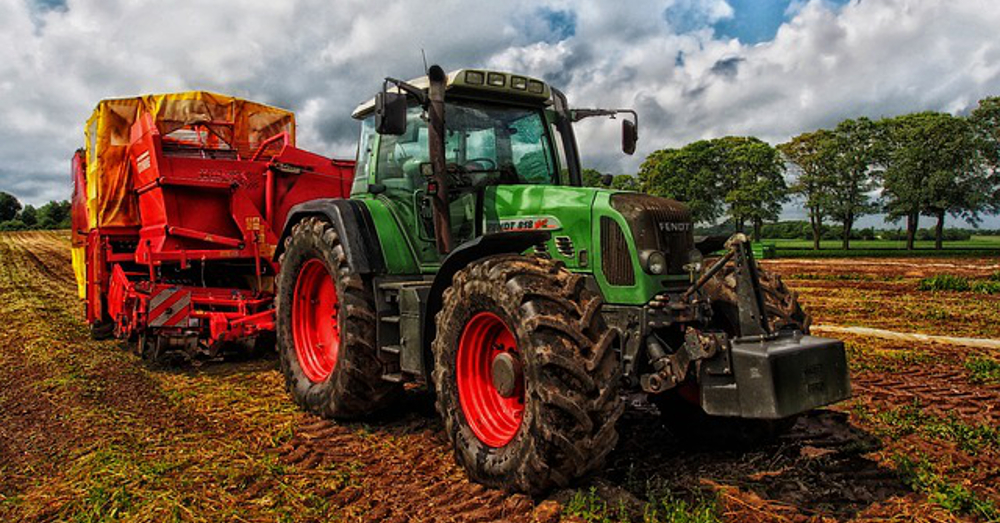
Monsanto, You Can Run But You Can’t Hide
- The U.S. Department of Justice has approved the merger of Monsanto and Bayer, which means just three companies now dominate the global seed and pesticide market. Consolidation promotes lower quality products as there’s less incentive for innovation when there’s less competition. Less competition also typically results in price increases. Both are expected to occur as a result of this merger. The first week of June marked the end of the Monsanto name, but that doesn’t mean the company, its products and everything associated with either, are going away — its name has simply changed to Bayer.
June 19, 2018 | Source: Mercola.com | by Dr. Joseph Mercola
May 29, 2018, the U.S. Department of Justice (DOJ) approved (with conditions) the merger of Monsanto and Bayer.1,2 The decision came on the heels of the European Union’s (EU) approval in March. Bayer’s takeover of Monsanto — the largest all-cash buyout on record3,4,5 — means just three companies now dominate the global seed and pesticide market.6
In addition to the Bayer-Monsanto merger, the DOJ has also approved the merger of Dow and DuPont, and the Federal Trade Commission recently approved ChemChina’s acquisition of Syngenta. Together, these three merged behemoths — Bayer, ChemChina and DowDuPont — will control 61 percent of the global seed market.
The same trio, plus BASF, will also control 70 percent of the pesticide market.7 Of these, Bayer will hold the largest share — about a quarter of the seed and pesticide markets combined. In 2011, Monsanto had 26 percent of the global seed market and Bayer had 3 percent. Bayer sold 17 percent of the total agrochemicals; Monsanto had 7 percent of the chemical market.8
As a condition of the DOJ’s approval, Bayer will sell some of its assets to BASF, including its soybean, cottonseed and glufosinate weed killer businesses, which overlap with Monsanto’s and were antitrust sticking points. So, the first week of June marked the end of the Monsanto name,9 but that doesn’t mean the company, its products and everything associated with either, are going away. As noted by Forbes,10 “its history, products and culture will linger. Bayer can’t change Monsanto’s history.”
Bayer Will Face Same Resistance as Monsanto
According to a Bayer June 4 statement,11 Monsanto’s product line will keep their original brand names in the Bayer portfolio, but the Monsanto name is being retired. The merged entity will retain the Bayer name. Cultural integration is predicted to be a challenge for the new, now much larger Bayer. Bayer also has a shadowy past of its own that is in need of rehabilitation.
“Yes, Bayer introduced the world to Aspirin and Phenobarbital. But it also trademarked Heroin and, when it was IG Farben during World War II, used concentration camp prisoners as slave laborers and drug testers with disastrous results,” Forbes writes,12 adding: “Even with that context, there are two special challenges to onboarding leaders from Monsanto into Bayer:
1) Monsanto’s history as a private company and 2) the “toxicity” of the Monsanto brand earned by its manufacture and marketing of DDT, PCBs, Agent Orange, recombinant bovine growth hormones, genetically modified crops and seed patenting model and enforcement …
There’s every reason to expect Monsanto’s people to be more results-oriented and less caring, more hierarchical and more driven by authority than Bayer’s people. These are non-trivial cultural hurdles to overcome.”
Adrian Bebb, a Friends of the Earth Europe food and farming campaigner commented on the merger, telling The Guardian:13
“Bayer will become Monsanto in all but name unless it takes drastic measures to distance itself from the U.S. chemical giant’s controversial past. If it continues to peddle dangerous pesticides and unwanted GMOs then it will quickly find itself dealing with the same global resistance that Monsanto did.”
What Kind of Food System Do You Want?
“The merger of corporate giants Monsanto and Bayer begs a vital question — what kind of agriculture do we really want?” John Vidal writes in a recent op-ed for The Guardian.14 As the world’s now largest seed and pesticide company, Bayer will have a direct impact on a majority of farmers in the U.S., EU and Great Britain.
Needless to say, the company will also wield tremendous power over what ends up on the plates of consumers. “It will be able to influence what and how most of the world’s food is grown, affecting the price and the method it is grown by,” Vidal writes. In stark contrast to Bayer and other biotech companies, which sells patented seeds at a premium and disallows seed sharing, Debal Deb, an Indian plant researcher, focuses on cultivating as wide a variety of crops as possible, and gives the seeds away for free.
Deb currently grows 1,340 different varieties of traditional Indian rice on donated land in West Bengal. Seeds from these crops are then distributed to more than 7,000 farmers across the country, with one condition: They must grow them and give some of the resulting seed away to others. As described by Vidal:
“This seed-sharing of ‘landraces,’ or local varieties, is not philanthropy but the extension of an age-old system of mutualized farming that has provided social stability and dietary diversity for millions of people. By continually selecting, crossbreeding and then exchanging their seed, farmers have developed varieties for their aroma, taste, color, medicinal properties and resistance to pests, drought and flood.”
